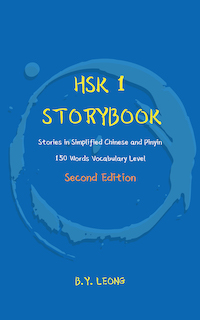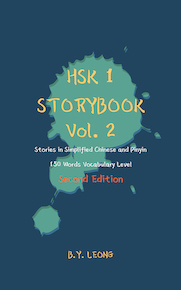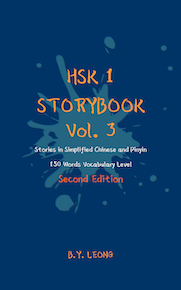
1. Introduction to HSK 1
- HSK 1 Overview: HSK 1 is the first level of the Hanyu Shuiping Kaoshi (HSK) and targets beginners. It consists of 150 basic words and phrases needed for daily communication.
- Importance for Beginners: It’s crucial for language learners to immerse themselves in authentic materials early on. This aids in understanding the practical usage of vocabulary and structures.
2. HSK 1 Storybooks
- Engaging with Stories: All Musing offers a series of storybooks tailored to HSK 1 learners. These books provide a narrative context, making learning more engaging and memorable.
- Benefits: Stories help in understanding sentence structure, familiarizing with the natural flow of the language, and making the vocabulary stick.
3. Listening Practices
- HSK 1 Audio Resources: Utilize free HSK Vocabulary audio files. Listening to these can improve pronunciation and listening skills.
4. HSK Vocabulary and Writing
- Vocabulary Lists: Regularly review the HSK 1 Vocabulary List. Understanding these words is foundational.
- Writing Practice: Use the HSK Vocabulary Writing Practice Sheets to get familiar with Chinese characters’ strokes and structure.
5. Interactive Online Quizzes
- HSK 1 Practice Tests and Quizzes: All Musing’s online practice tests are timed, mimicking the actual exam environment. This helps in building confidence and time management skills.
- Sentence Structure Exercises: Engage with sentence structure quizzes to grasp the basic syntax of Chinese.
6. Real-life Application
- Labeling Everyday Items: Label household items with their Chinese names. This constant visual cue reinforces learning.
- Conversational Practice: Engage in simple dialogues using HSK 1 phrases with language partners.
7. Cultural Immersion
- Chinese Films and Shows: Watch children’s shows or movies with subtitles. The repetitive nature of children’s content is excellent for beginners.
- Festivals and Cuisine: Learn about Chinese festivals and cuisine. Understanding the culture behind the language makes learning more holistic.
8. Regular Review and Reflection
- Reflective Learning: Keep a journal in Chinese using HSK 1 vocabulary. Reflect on daily learnings and expressions.
- Regular Revision: Consistency is key. Regularly revisiting materials ensures long-term retention.
9. Cultural Immersion
Though it may be challenging due to travel restrictions, immerse yourself in the Chinese culture by visiting museums, art galleries, or attending cultural events that showcase aspects of China’s history and traditions. This can provide a richer understanding of the context behind the language you are learning.
10. Setting Achievable Goals
- Short-Term Milestones: Set weekly goals, like learning 20 new words or completing a HSK storybook.
- Long-Term Aspirations: Aim to pass the HSK 1 exam or hold a 5-minute conversation in Chinese.
Conclusion
Transitioning from textbooks to authentic materials can be challenging but incredibly rewarding. It exposes learners to the real language used in daily life and enhances cultural understanding. With resources like HSK storybooks, audio files, online quizzes, and writing practice sheets from All Musing, learners are well-equipped to embark on this exciting journey. Remember, consistency and engagement are your keys to success in mastering Chinese with HSK 1.


